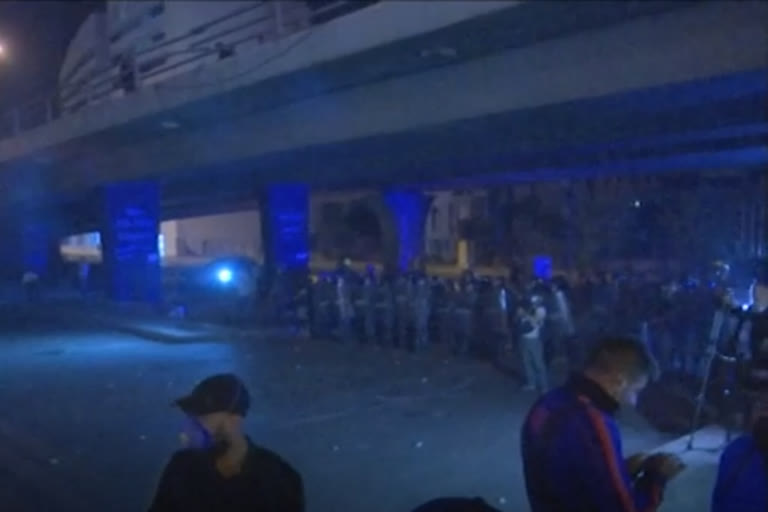Beirut: Lebanese security forces fired tear gas and clashed with anti-government protesters in Beirut on Friday, setting off street confrontations that lasted for hours.
Protesters threw stones and fireworks at police, and security forces responded with tear gas to disperse the crowd. But the number of protesters continued to grow into the late hours of Friday.
Despite efforts to control the currency depreciation, the Lebanese pound sold for more than 6,000 to the dollar on Thursday on the black market, down from 4,000 in recent days.
Lebanon’s prime minister held an emergency Cabinet meeting on Friday, hours after demonstrators shut roads across the country with burning tires in renewed nationwide protests spurred by a plunging national currency and economic crisis.
The government and its central bank promised to inject fresh dollars into the market to control the fast deteriorating exchange rate that saw the local currency lose nearly 70% of its value in weeks.
Read more: Lebanon protesters take to streets over proposed new taxes
The pound had maintained a fixed rate of 1,500 to the dollar for nearly 30 years. No specific amount was given for the planned injection.
But the promise was met with skepticism from a public that has lost trust in officials they blame for the country’s unparalleled financial and economic crisis.
The dollar shortage, coupled with already negative economic growth, has crunched Lebanon's middle class and increased poverty in the small Mediterranean nation dependent on imports of basic goods.
The Lebanese have for years used the dollar and the Lebanese pound interchangeably. So with the drop, employees saw their income and savings lose over 60% in value in weeks.
Lebanon's President Michel Aoun blamed the currency plunge this week on "political manipulation," intentionally aimed to create chaos to undermine the government he is allied with.
Also read: Lebanon protests enter second week
(With inputs from AP)



